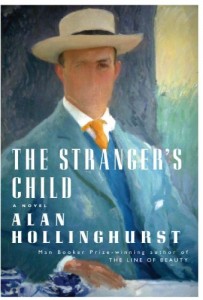 From Alan Hollinghurst’s new one, The Stranger’s Child:
From Alan Hollinghurst’s new one, The Stranger’s Child:
She could really play, couldn’t she?—that was Paul [Bryant (!!!)]’s first feeling. He looked around hastily at the others, with a bashful grin on his face. Was it Chopin? He saw them all deciding, staring at each other, frowning or nodding, some leaning to whisper. There was a noiseless sigh, a wave of collective recognition and relief that almost made the music itself unimportant: they’d got it. He didn’t want to show that he hadn’t. He had never seen anyone play the piano seriously and at close range, and it locked him into a state of mesmerized embarrassment, made worse by the desire to conceal it. There was the noise itself, which he thought of vaguely as the noise of classical music, sameish and rhetorical, full of feelings people surely never had, and there was the sight of Mrs. Keeping in action, the plunges and stabs of her bare arms up and down the keyboard. She wasn’t a large woman—it was only her presence that was crushing. Her little hands looked grave and comical as they stretched and rumbled and tinkled. She rocked and jumped from one buttock to the other, in her stiff red dress, her black wrap slipping—it twitched and drooped behind her as she moved, with a worrying life of its own. The riveting, but almost unwatchable, thing was her profile, powdered and severe, shaken by twitches and nods, like tics only just kept under control. He stared, smiling tightly, and covering his mouth and chin intensively with his hand.